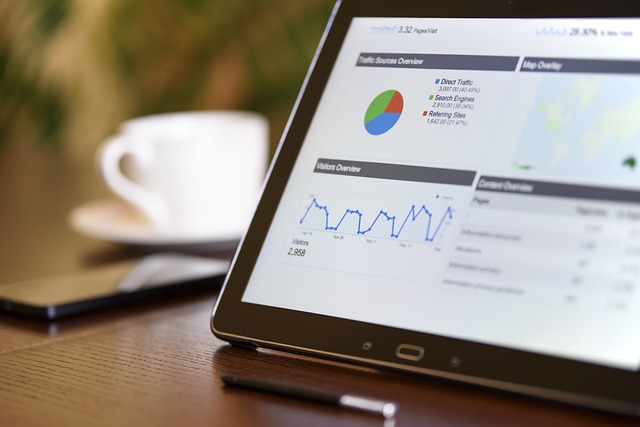The Importance of Personal Development in Work-Life Balance
In today’s fast-paced world, the concept of work-life balance holds immense significance. Notably, personal development plays a crucial role in fostering this balance. When you hear “personal development,” it might evoke images of self-help books or motivational seminars. However, personal development encompasses a wide array of practices aimed at improving one’s life. These practices include everything from setting goals to enhancing soft skills and managing stress effectively. By focusing on personal development, individuals can create a better balance between their professional responsibilities and personal interests. This balance fosters not only well-being but also higher productivity.
Consider this: the feeling of being overwhelmed often stems from poor time management and lack of clarity about personal goals. Developing skills in these areas dramatically transforms how someone approaches both work and life. For instance, prioritizing tasks, defining clear boundaries, and developing assertive communication strategies can alleviate stress. This stress relief directly contributes to a healthier work-life balance. As a result, you can allocate time for personal interests, family, and self-care. Each of these components plays an integral part in ultimately achieving entrepreneur success. By investing time in personal development, individuals do not just improve themselves; they enhance their ability to maintain balance in a demanding world.
Setting Goals and Work-Life Balance
Have you ever set a goal only to feel overwhelmed by it? Many people find themselves in that situation. The key to successful goal-setting lies in clarity and structure. Effective goals often follow the SMART criteria: Specific, Measurable, Achievable, Relevant, and Time-bound. According to numerous studies, the clarity provided by goal-setting serves as a motivational tool, guiding individuals toward their aspirations. When you establish your goals, whether for personal or professional realms, you gain a precise roadmap of what you aim to achieve. This clarity directly relates to work-life balance.
By defining your goals, you’re more likely to allocate your time and resources effectively. Let’s say you aim to advance your career. By setting specific professional development goals—like completing a certification or taking a leadership course—you build a structured path to follow. Consequently, you can also carve out time for personal pursuits, such as spending weekends with family or engaging in hobbies. The dual-layered approach ensures you don’t neglect personal satisfaction in pursuit of career success. This balance not only enriches your personal life but also elevates your performance at work, ultimately leading to a more fulfilling career path.
Time Management Strategies
Time management is an often-overlooked pillar of both personal development and work-life balance. Without effective time management, even the best-laid plans can go awry. Have you ever felt that there simply aren’t enough hours in the day? You’re not alone. Many professionals struggle with juggling multiple responsibilities. Fortunately, several strategies can help mitigate this stress. For instance, the Pomodoro Technique breaks work into intervals, traditionally 25 minutes in length, followed by a short break. This method enhances focus and allows for necessary downtime, which is crucial for maintaining productivity.
Additionally, prioritizing tasks using techniques like the Eisenhower Matrix keeps you focused on what truly matters. This tool divides tasks into categories based on urgency and importance. By categorizing your to-dos, you can make informed decisions about what to tackle first. Imagine freeing up time by eliminating less important tasks! This focus on strategic prioritization ensures that you have sufficient time for personal development activities, hobbies, and quality family moments. Therefore, mastering time management not only paves the way for professional accomplishments but also enriches your personal life.
The Role of Mindfulness and Self-Care
Another key aspect of personal development that significantly affects work-life balance is mindfulness. Mindfulness practices, such as meditation and yoga, have gained popularity in recent years for a good reason. They’re effective at reducing stress and increasing emotional resilience. Engaging in mindfulness allows you to become more present in your daily life. Rather than worrying about future deadlines or previous meetings, you can anchor yourself in the moment, which enhances overall well-being.
Self-care goes hand in hand with mindfulness. Taking time out for activities that rejuvenate you—whether it’s reading a book, going for a jog, or simply enjoying a cup of tea—contributes to personal development. When you incorporate self-care into your routine, you often find that you engage more effectively at work. Feeling mentally and physically healthy undoubtedly impacts your productivity and creativity. Furthermore, when you prioritize personal well-being, your ability to balance professional demands and personal enjoyment improves tremendously. In this light, investing in personal development through mindfulness and self-care is essential for achieving a sustainable work-life balance.
Building Positive Relationships
Equally important to personal development and work-life balance is the art of building positive relationships. In professional environments, relationships are crucial, whether with colleagues, clients, or stakeholders. Good relationships enhance collaboration and lead to greater job satisfaction. A workplace that fosters positive interactions ultimately contributes to a sense of belonging and community, which can immensely alleviate stress. To achieve this, effective communication is key. Developing your communication skills can improve your ability to express needs and understanding others’ perspectives.
On a personal level, nurturing relationships with family and friends also contributes to your overall well-being. These relationships provide emotional support, which is vital for maintaining balance in times of stress. Engaging in meaningful conversations, sharing experiences, or simply enjoying leisure time together enriches your life. Such personal connections serve as a buffer against work-related pressures. They remind you of the value of life beyond career ambitions. Ultimately, prioritizing personal development in the realm of relationships manifests as a dual benefit: enhanced personal happiness and improved workplace dynamics.
Continuous Learning and Adaptability
The world is ever-changing, and standing still is not an option for those pursuing personal development and work-life balance. Continuous learning becomes a way of life. When you cultivate a mindset that embraces knowledge, you open yourself up to new opportunities and ideas. Engaging in lifelong learning keeps you relevant in your career and allows for personal growth.
Whether it’s attending workshops, enrolling in online courses, or simply reading books, enriching your knowledge fosters adaptability. Furthermore, developing adaptability equips you with the tools to manage challenges more effectively. In a professional setting, this adaptability can lead to innovative solutions and better team dynamics. Adaptability allows you to handle changes in your work environment, leading to lower stress levels and promoting a healthier work-life balance. Consequently, continuous learning forms an essential piece of the puzzle for achieving both personal development and entrepreneurial success.
Seeking Feedback and Improvement
Lastly, actively seeking feedback is vital in the realms of personal development and work-life balance. Constructive feedback opens avenues for growth, enabling you to refine skills and identify areas for improvement. Establishing a routine of soliciting feedback from colleagues, mentors, or even friends creates a culture of openness. This culture encourages growth and understanding. When you’re open to hearing about your strengths and weaknesses, you cultivate resilience. It helps you navigate consequences gracefully, whether personal or professional.
In addition to soliciting feedback, acting on it is imperative. Implementing changes based on the insights you receive promotes continuous growth. This commitment to improvement not only enhances professional capabilities but also fosters a sense of achievement in personal life. Engaging with constructive criticism leads to a stronger sense of self-awareness, making it easier to strive for work-life balance. As you progress, embracing this cycle of feedback and improvement provides tangible benefits, both personally and professionally.
FAQ
What is personal development?
Personal development refers to activities and practices that improve one’s skills, knowledge, and awareness. It encompasses a wide range of areas such as goal setting, time management, emotional intelligence, and self-care aimed at enhancing quality of life and achieving goals.
How does work-life balance contribute to professional success?
A good work-life balance is essential for sustaining mental health and overall happiness. When individuals manage work and personal responsibilities effectively, they tend to be more productive, innovative, and satisfied with their jobs, leading to greater professional success.
Can mindfulness practices improve work-life balance?
Yes, mindfulness practices help individuals reduce stress and increase emotional clarity. By becoming more present, individuals can handle work-related challenges with greater calmness, thus improving their overall work-life balance.
Why is continuous learning important for entrepreneurs?
Continuous learning allows entrepreneurs to adapt to market changes, enhance their skills, and seize new opportunities. Developing new knowledge equips them to lead their teams more effectively and promotes overall business growth.
What role do relationships play in achieving work-life balance?
Strong personal and professional relationships provide emotional support and enhance workplace dynamics. Positive relationships improve job satisfaction, making it easier to achieve a healthy balance between work and personal life.



